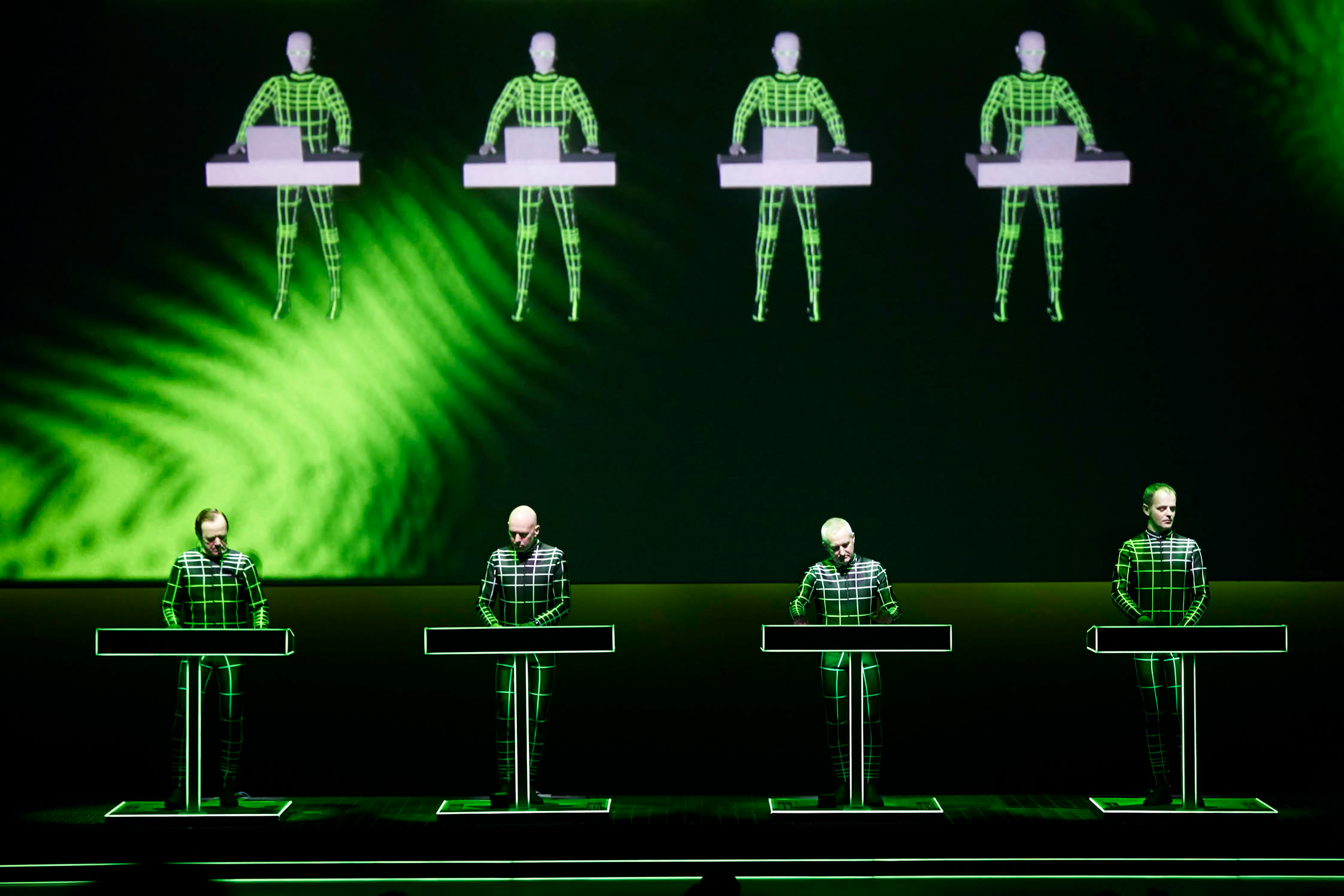Yesterday, I was one of many NY’ers trying to grab a pair of tickets to Kraftwerk’s eight-night residency at the MoMa. Given the intimate and special performances, it was understandable that ticket demand was going to be very high, so I noted with interest that MoMa/Kraftwerk decided to go with the smaller ticketing upstart, ShowClix.
Well, things didn’t go so well for anyone, as the immense amount traffic overwhelmed the Showclix site and system, leaving many fans with a long wait before eventually getting shut out. One would-be ticket-buyer turned to the Kraftwerk classic “Pocket Calculator” for this silly take on the experience:
It’d be funnier if it weren’t so maddening to get shut out of yet another great show. And if we’re going with techie robot-style videos, I’d like to suggest that most fans felt a bit more like the French robot guy from Euro Trip:
Heh, I love that scene.
It’s interesting to note how hard it is for smaller ticketing companies like ShowClix to handle these immensely popular on-sales. This is one of many recent ticketing issues where one of Ticketmaster’s smaller competitor’s couldn’t quite handle the overload (for other examples off the top of my head, see last week’s Bonnaroo on-sale through Musictoday or go back to 2010 when Ticketfly melted down for Phish’s Merriweather Post-Pavilion on-sales). And, even though you might still have some problems getting tickets from Ticketmaster, it’s actually very rare that their site blows up in the face of a big on-sale. Despite all of the hate spewed at Ticketmaster, their system is still the most robust and functional out there when it comes to these large-volume on-sales. In this case with ShowClix, it was obviously a bit more than just purely a traffic issue, but it certainly brought out the bugs quickly.
Then again, I doubt you’ve ever gotten such a thorough and heartfelt apology from a Ticketmaster exec like this one from ShowClix CEO Josh Dziabiak:
Dear Kraftwerk fans,
Sorry it took me a day to write this, but it was important for me to first understand all of the facts so they could be properly communicated. First and foremost, we are deeply sorry for the frustration and massive inconvenience that yesterday’s on-sale for Kraftwerk caused for many of their great fans around the world. I recognize that so many of you spent hours in front of your computer watching a spinning wheel—or watching the page go blank. Please allow me to explain what happened and what we’ll do to correct this for the future:
MoMA has been a really great partner of ShowClix for over a year now, and we’ve worked with them to move tens of thousands of tickets successfully. They leaned on us to help them with this on-sale, which was a special event for them, and we let them (and you) down. ShowClix has successfully executed many very large, high-demand on-sales over the past five years that we’ve been in business. Most of these on-sales have a high demand, with a great deal of inventory to sell. Kraftwerk’s eight-night performance on-sale was a very unique situation. While we’re not able to disclose the number of tickets that were available for these performances, what I will say is that of the tens and tens of thousands of die-hard Kraftwerk fans from around the world that logged on at exactly noon EST yesterday to get these tickets, the venue capacity restrictions would only ever allow approximately 1.20% of them to actually be reserved. As you might imagine, this is an extremely large technical hurdle, particularly because of the tiny fraction of supply versus the demand.
Still, this is no excuse. We should have never advised MoMA to allow the tickets to be sold in the fashion in which they were, because in the end—even if everything were to go smoothly—many people would have been very disappointed. ShowClix didn’t set the proper expectations from the beginning, nor did we properly prepare our load balancing servers in order to prevent the queue from timing out. Ultimately, we failed many of you.
Since yesterday, we have discovered that a single setting within one of the lower levels of our queuing system’s middleware bubbled-up under the heavy load and caused frequent timeouts. There were also some issues with the broadcast system which allows us to communicate with ticket buyers while they’re waiting in the queue. We should have both of these problems resolved by the end of this week. However, even with these problems resolved, it is my belief moving forward that we should not perform an on-sale all at once for an event or venue that has such small capacity restrictions versus potential demand. Instead, we will advise our clients on various alternative methods to fairly sell tickets to an event that has such a small fraction of inventory available versus the potential demand.
There were certainly technical problems around this event. Contrary to some reports, however, our servers never crashed or went offline, and none of our other clients or their events experienced a problem during the Kraftwerk on-sale. We always keep high-demand on-sales separate from all of the other activity happening on our server. It’s also important to note that there were online sales successfully processing the entire time, and all eight of the events sold-out in approximately 60 minutes.
In closing, regardless of what the technical problem was—or how we plan to solve it in the future—we haven’t overlooked the incredible amount of frustration many people felt from the on-sale. We take full responsibility. This company was founded and continues to be run by a big team of live entertainment and technology addicts. We feel for you, the fans, and our partner, MoMA, and vow to work hard to prevent such a debacle from happening again in the future.
Thank you for taking the time to read this.
Joshua Dziabiak
CEO
ShowClix, Inc.
I definitely have a place in my heart for the smaller ticketing companies providing some competition to the Ticketmaster/LiveNation behemoth, so I appreciate this kind of note from the CEO. Then again, it doesn’t come even close to putting a pair of tickets in my hands to see Kraftwerk play Computer World live in its entirety.
Apology accepted, now who’s got my extra?






